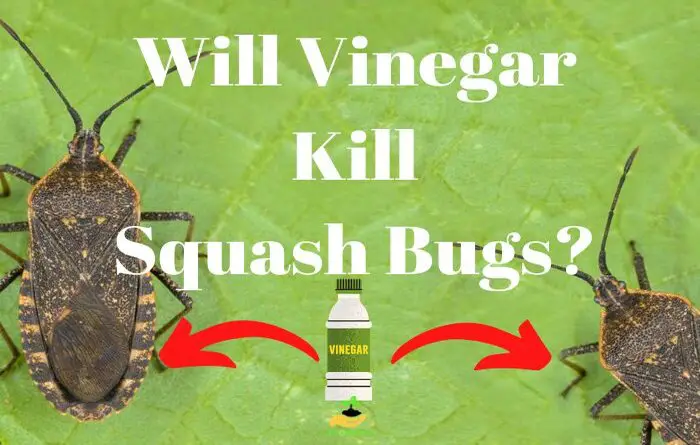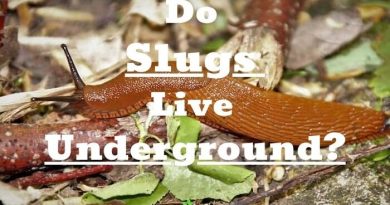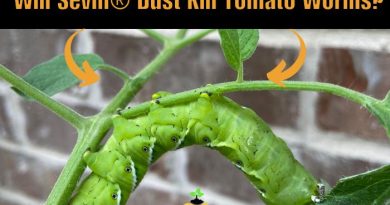Will Vinegar Kill Squash Bugs? (Here is the Answer)
Vinegar has the potential to kill squash bugs. It is a daily life chemical present in almost all households, and the fact that it is apt at killing squash bugs makes it perfect. Mixing equal parts water and vinegar in a spray bottle and applying it directly to the bugs can effectively kill them.
Will Vinegar Kill Squash Bugs?
The effectiveness of vinegar in killing bugs depends on various factors such as:
Vinegar’s Concentration
The concentration of vinegar used can affect its effectiveness in killing squash bugs. Higher concentrations of vinegar may be more effective, but can also harm the plants.
Timing of Application
Applying vinegar when the squash bugs are in the nymph stage is more effective than when they are in the adult stage, as nymphs are more susceptible to damage.
Weather Conditions
Weather conditions, such as temperature and humidity, can affect the effectiveness of vinegar in killing squash bugs. Hot, dry conditions can reduce the effectiveness of vinegar, while cool, moist conditions can enhance its effectiveness.
Size of Infestation
The larger the infestation, the less effective vinegar will be in controlling squash bug populations.
In general, vinegar is effective against small, soft-bodied insects such as aphids, mites, and whiteflies, as the acetic acid in vinegar can disrupt their cell membranes, leading to death.
How Should You Apply Vinegar On Plants to Kill Squash Bugs
Here is a step-by-step procedure for applying vinegar to control squash bugs:
- Prepare the vinegar solution: Mix equal parts of water and white vinegar in a spray bottle.
- Spray the solution: Spray the vinegar solution directly on the squash bugs and their egg masses, being careful not to damage the plants.
- Repeat as needed: Repeat the treatment every 3-4 days, until you have effectively controlled the bug population.
- Monitor: Monitor the plants regularly for new bug infestations and repeat the treatment as needed.
You can also soak a cloth in the solution and use it to wipe down the leaves of your plants, as this will help to remove both the bugs and their eggs.
Keep in mind that vinegar is not a long-term solution and you may need to reapply it regularly to keep the squash bugs under control.
Additionally, vinegar can also be harmful to some plants, so be sure to test a small area first and monitor for any adverse effects.
How to kill Squash Bugs using Vinegar
Here’s a step-by-step guide on how to kill squash bugs using vinegar:
- Identify the pests: Look for adult squash bugs and their nymphs on the undersides of leaves and on the stems of the plant.
- Prepare the solution: Mix equal parts of white vinegar and water in a spray bottle.
- Apply the solution: Spray the solution directly on the bugs and their nymphs, making sure to cover them completely.
- Repeat the application: Repeat the application every 2-3 days until the pests are completely gone.
- Monitor the plant: Keep an eye on the plant for any remaining pests and repeat the application if necessary.
Why Do Squash Bugs Appear
Squash bugs typically appear in gardens and fields during the growing season. The following factors contribute to their presence:
- Ideal habitat: Squash bugs prefer warm, moist environments with plenty of vegetation.
- Availability of host plants: The presence of cucurbit crops such as squash, pumpkin, and melons can attract squash bugs.
- High populations from previous years: Overwintering adult squash bugs can lay eggs in the spring, leading to large populations.
- Lack of natural predators: In some cases, a lack of natural predators such as birds and parasitic wasps can lead to an increase in squash bug populations.
Squash bugs are bad news. There’s no denying that. That’s because of the following reasons:
- They feed on the leaves, stems, and fruit of plants in the cucurbit family, causing significant damage to crops and reducing yield.
- Squash bugs can transmit plant diseases, further exacerbating plant damage.
- Their populations can proliferate and become difficult to control if left unchecked.
- The nymphs and adults emit a foul odor when disturbed or crushed, which can be unpleasant for gardeners.
Properties of Vinegar That Eliminate Squash Bugs
Vinegar has several properties that make it effective in eliminating squash bugs:
- Acidity: Vinegar is acidic, and the acidity can kill squash bugs on contact.
- Dehydration: Vinegar can dry out and kill the bugs by removing their protective oils and leaving them vulnerable to dehydration.
- Pheromone disruption: Squash bugs communicate with each other using pheromones, and vinegar can disrupt these pheromones, making it harder for them to locate each other and mate.
- Natural herbicide: In addition to its insecticidal properties, vinegar can also be used as a natural herbicide to control weeds and unwanted plants. The acidity of vinegar can effectively kill weeds and prevent them from regrowing.
- Smell: The pungent odor of vinegar can repel squash bugs and make it difficult for them to locate the plants they want to feed on.
Precautions To Follow When Dealing With Squash Bugs
When dealing with squash bugs, it is important to follow these precautions:
- Wear gloves: Squash bugs secrete a foul-smelling odor and carry diseases, so it is important to wear gloves while handling them.
- Wash hands: After handling the bugs, make sure to wash your hands thoroughly to avoid the spread of diseases.
- Avoid crushing the bugs: Crushing the bugs can release a foul-smelling odor and spread the smell and bacteria to other plants.
- Use insecticidal soap: To control the infestation, use insecticidal soap, following the instructions carefully.
- Keep the garden clean: Remove any dead plant material from the garden to reduce the habitat for the bugs.
- Use barriers: Place barriers around your plants to prevent the bugs from reaching them.
- Monitor regularly: Regularly inspect your plants for signs of infestation and take action promptly if you find any bugs
Ways Of Preventing Squash Bugs
Here are some additional ways to prevent squash bugs:
- Crop rotation: Avoid planting squash and other related plants in the same spot each year to break the cycle of infestation.
- Use row covers: Covering plants with row covers can help prevent adult bugs from laying eggs on the plants.
- Plant-resistant varieties: Some squash varieties are more resistant to squash bugs, so consider planting those.
- Keep the garden weed-free: Weeds can serve as an alternative food source for squash bugs, so keep the garden weed-free.
- Use natural predators: Encourage the presence of natural predators such as ladybugs, lacewings, and parasitic wasps in your garden, as they can help control the squash bug population.
- Remove egg masses: Handpick and remove egg masses from the plants and destroy them.
- Encourage good garden hygiene: Keep the garden tidy and free from debris, as this can reduce the habitats for the bugs.




